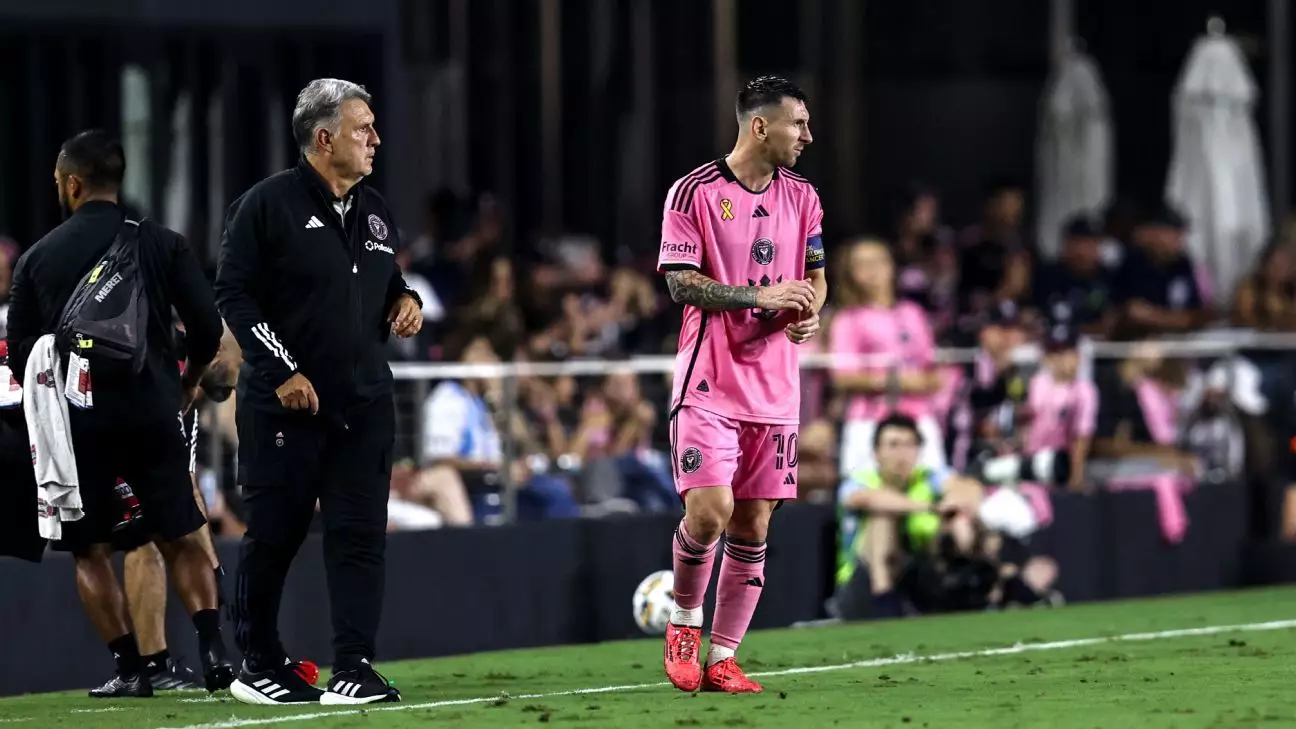In the competitive landscape of football, the Ballon d’Or remains one of the pinnacle recognitions for individual excellence. As the awards ceremony approaches, the ongoing debate around who deserves the honor has once again illuminated the brilliance of up-and-coming talents like Vinícius Júnior, juxtaposed against the athletic legacy of Lionel Messi. Inter Miami’s head coach, Gerardo “Tata” Martino, recently made headlines by expressing his belief that Vinícius deserves the accolade for his outstanding season at Real Madrid. However, he still reverently maintains that Messi continues to be “the best” player globally, emphasizing the complexity of evaluating player performance within different contexts.
Vinícius Júnior’s 2022-2023 season was a masterpiece defined by remarkable statistics and pivotal moments. The 24-year-old Brazilian winger netted 24 goals while contributing an impressive 11 assists in all competitions, sealing his status as one of the key players in one of Europe’s most competitive leagues. His notable performance in the Champions League final against Borussia Dortmund, where he scored a crucial goal, solidified his position among the elite contenders for the Ballon d’Or. His development and impact on the game reflect a transformative potential that many believe could reshape football’s competitive hierarchy going forward.
Meanwhile, Messi’s journey is marked by an unprecedented accumulation of accolades, including a record eight Ballon d’Or trophies. His recent omission from this year’s nominations, which is a significant deviation from a two-decade streak, raises questions about longevity and adaptability in professional sports. Despite this absence from the latest honors, Messi’s performance in Major League Soccer has been nothing short of extraordinary, scoring 20 goals and assisting 16 times in just 19 appearances. Such statistics emphasize that even at 37, he continues to render performances that challenge the very notion of age limitations in athletics.
Martino’s reflections on the award reveal a more nuanced understanding of what it represents. He suggests that the criteria for the award have often been ambiguous, oscillating between recognizing a player’s annual performance versus their overall footballing legacy. This year’s discussions challenge the traditional lore surrounding the Ballon d’Or, as contemporary players like Vinícius Júnior emerge as legitimate contenders against steadfast legends like Messi.
Furthermore, the sentiments expressed by former Barcelona teammate Jordi Alba resonate with many fans and players who question the Ballon d’Or’s capacity to reflect true excellence. Alba’s assertion that “Leo always has to be there” encapsulates the enduring admiration for the Argentine, highlighting a collective struggle to redefine greatness as new talents rise.
As football continues to evolve, the conversation surrounding the Ballon d’Or will likely remain vibrant. The candidacy of players like Vinícius Júnior usher in a new era while celebrating Messi’s monumental contributions signals that greatness may transcend age and accolades. Whether or not the Ballon d’Or aligns with the sporting evolution is yet to be seen, but one certainty remains: the world of football thrives on its ability to produce exceptional talents that inspire generations.

